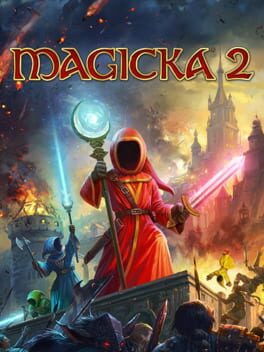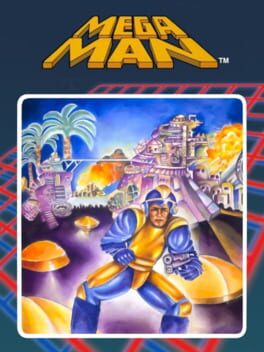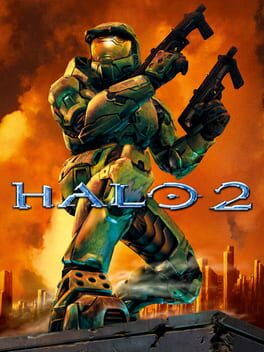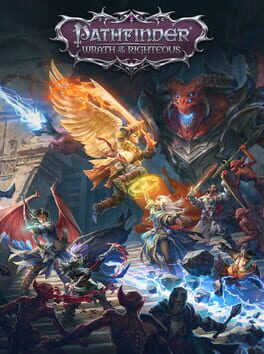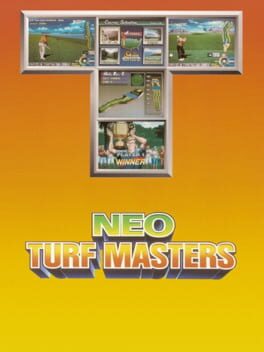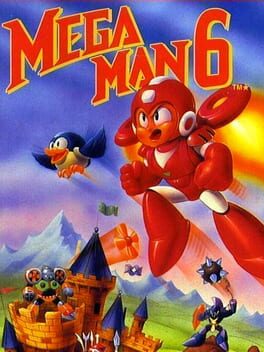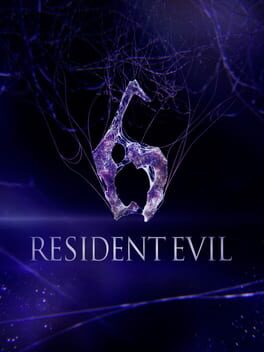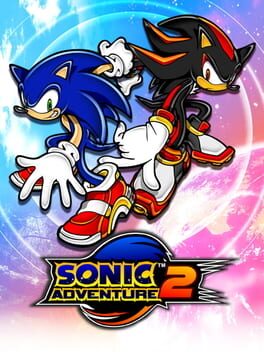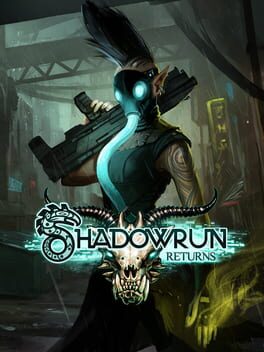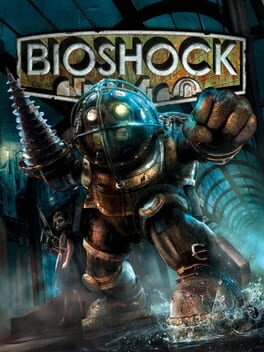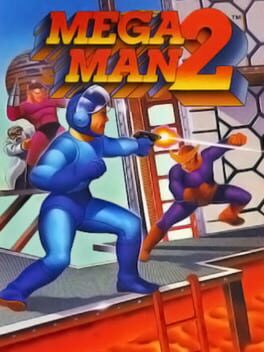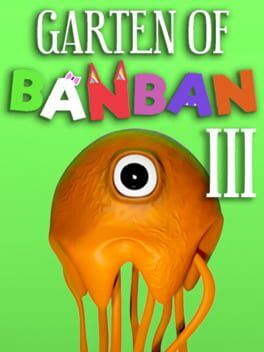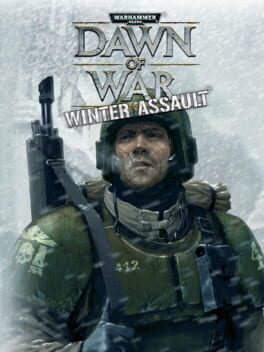Chef033
2015
What if we took the first game and removed all the fun, because it made players too strong?
Gone are the lightning bolts. Gone are the blue screens. Gone is encasing yourself in ice and rock spike armor, casting haste on yourself, and gibbing bosses instantly by running into them. Gone is anything remotely resembling a good time, all in the name of balance, and when you are done what you have left is a duller, slower, inferior game. Just play Magicka 1 instead.
Gone are the lightning bolts. Gone are the blue screens. Gone is encasing yourself in ice and rock spike armor, casting haste on yourself, and gibbing bosses instantly by running into them. Gone is anything remotely resembling a good time, all in the name of balance, and when you are done what you have left is a duller, slower, inferior game. Just play Magicka 1 instead.
2024
This is Arrowhead's triumph.
If you'd told me ten years ago that the guys who made Magicka would produce a AAA budget title with CGI that outdoes square enix, with visuals that are both artistically and technologically among the most impressive of its era, that ends up being WILDLY commercially successful beyond anyone's imagination, and that they did all of this without ever compromising the spirit of comedy, mayhem, and danger that made games like Magicka or Helldivers great, I don't think I would have believed you.
This game is nothing short of a miracle. I don't say that to be hyperbolic about its quality - although it is a really well made game and is a ton of fun to play. I say that because in its triumph it is a dream come true for a little indie team I've loved for a very long time. It is the realization of all the goofy fun that Arrowhead's design philosophy has embodied since their first game in 2011, and everyone loves it and celebrates it.
Helldivers 2 captures the spirit of the original perfectly - being one of the funnest coop shooter experiences out there, but the switch to third person was genius. The combat and shooting feel better than ever, there's a greater level of precision over what you can do to deal with enemies and patrols, and simultaneously more and less obfuscation of details critical to success (you can now see past the edge of the screen but fog and rain are a big deal!) Perhaps the biggest change of all this is that you can now split the team to accomplish multiple objectives at the same time! All of these changes are net pluses to a gameplay loop that already worked like a dream.
All my favorite mechanics - the konami code inputs for strategems, the inevitability of wanton friendly fire, the insane hostility of the game's higher difficulties and the emphasis on doing everything you can to prevent a situation from going bad and then having to BOOK IT when it inevitably does - it's all still there. Nothing has been compromised. If anything they've only taken this stuff further. And the public loves it despite not dumbing down a single element. Astonishing.
I'm happy for Arrowhead. I'm happy for their success. I'm happy for me, as a fan of their games, to see that they've knocked it out of the park yet again and this time everyone else appreciates it too. This game makes me happy. This is Arrowhead's triumph.
If you'd told me ten years ago that the guys who made Magicka would produce a AAA budget title with CGI that outdoes square enix, with visuals that are both artistically and technologically among the most impressive of its era, that ends up being WILDLY commercially successful beyond anyone's imagination, and that they did all of this without ever compromising the spirit of comedy, mayhem, and danger that made games like Magicka or Helldivers great, I don't think I would have believed you.
This game is nothing short of a miracle. I don't say that to be hyperbolic about its quality - although it is a really well made game and is a ton of fun to play. I say that because in its triumph it is a dream come true for a little indie team I've loved for a very long time. It is the realization of all the goofy fun that Arrowhead's design philosophy has embodied since their first game in 2011, and everyone loves it and celebrates it.
Helldivers 2 captures the spirit of the original perfectly - being one of the funnest coop shooter experiences out there, but the switch to third person was genius. The combat and shooting feel better than ever, there's a greater level of precision over what you can do to deal with enemies and patrols, and simultaneously more and less obfuscation of details critical to success (you can now see past the edge of the screen but fog and rain are a big deal!) Perhaps the biggest change of all this is that you can now split the team to accomplish multiple objectives at the same time! All of these changes are net pluses to a gameplay loop that already worked like a dream.
All my favorite mechanics - the konami code inputs for strategems, the inevitability of wanton friendly fire, the insane hostility of the game's higher difficulties and the emphasis on doing everything you can to prevent a situation from going bad and then having to BOOK IT when it inevitably does - it's all still there. Nothing has been compromised. If anything they've only taken this stuff further. And the public loves it despite not dumbing down a single element. Astonishing.
I'm happy for Arrowhead. I'm happy for their success. I'm happy for me, as a fan of their games, to see that they've knocked it out of the park yet again and this time everyone else appreciates it too. This game makes me happy. This is Arrowhead's triumph.
1987
This one is fucking grimy. I just replayed Mega Man for the first time in over ten years this month, and one thing you forget so easily when you haven't played the original in a long time is how "off" everything feels. Sure, I remembered the sprite flicker, and the glitchy screen transitions, and the mean level design. I remembered a lot of things about how this particular Mega Man was the worst of the NES entries. But what I didn't remember is just how bad movement feels in this one. Mega Man slides like he's on ice skates in every stage that isn't Ice Man's, and in Ice Man's stage you may as well not bother walking on the ground at all. Just making it up a series of alternating platforms or attempting to avoid an enemy moving up and down is enough of a hurdle, god help you when they start having you platform over pits and spikes.
Unlike its sequels, Mega Man's enemies' damage values are all over the place, their attack patterns often inscrutable and more easily solved by brute forcing through a particularly difficult encounter than by careful application of running, jumping, and shooting. Its distribution of health and weapon energy is sparse and oddly placed. Its platforming puzzles feel clumsy and oddly timed. You really do just get the sense they didn't know what they were doing yet.
Mega Man is a really important game - it laid the groundwork for one of the funnest, most important platforming franchises of all time, but boy howdy is the first entry a fucking mess.
Unlike its sequels, Mega Man's enemies' damage values are all over the place, their attack patterns often inscrutable and more easily solved by brute forcing through a particularly difficult encounter than by careful application of running, jumping, and shooting. Its distribution of health and weapon energy is sparse and oddly placed. Its platforming puzzles feel clumsy and oddly timed. You really do just get the sense they didn't know what they were doing yet.
Mega Man is a really important game - it laid the groundwork for one of the funnest, most important platforming franchises of all time, but boy howdy is the first entry a fucking mess.
2004
Insanely cool CRPG, which I don't play a whole lot of because so many of them tend to drag. WOTR is long, and it's wordy, but the writing across the board is super compelling and the gameplay is great. Not nearly enough d20 adaptations attempt turn based combat faithful to the tabletops, and fewer still do it so well.
I think one of the most impressive aspects of the game is its reactivity in the mid and late game. It's a little railroady towards the beginning, and thematically much of the game pushes the player in a Lawful Good direction, but ultimately the choice is yours and I haven't played a game that made being this evil this much fun in a very long time. It might have the best tyrannical undead lord RP I've ever played, full stop. Choices have meaningful consequences in both the dramatic and mechanical sense, with many decisions influencing events far, far into the game in ways you don't always expect, which is just fantastic in a genre plagued with meaningless binary Paragon/Renegade dialogue trees. Even when going for a particular alignment, I found myself making a lot of value judgments based on my feelings because the characters and the plot had me emotionally invested in the goings-on. There aren't a lot of games that truly make me feel rotten and satisfied in equal measure for doing something evil, or so torn over figuring out the right thing to do.
The character writing is (mostly) top notch, with the worst examples just being sort of dull in comparison to the high notes. When the character writing hits the high notes, it REALLY hits the high notes. The companions, especially the neutral or evil-aligned ones, are filled with some real charmers. Daeran, your sassy gay evil aristocrat divine caster, is a treat. He carries a tragic backstory tinged with mystery, but ultimately his alignment is what it is simply because he is a hedonistic dickhead, and he's all too happy to explain this to you, no excuses. Then there's Woljif, tiefling thief and dumbass scoundrel, who's a hoot, but heralds a subplot about confidence and powerlessness that adds depth to the character you wouldn't expect. Camellia, half-elf shaman is... well, she's unforgettable. Wenduag, fucked up bloodthirster and half-spider mutant, is fascinating, seemingly puddle-deep when introduced but later revealing a remarkable complexity behind her backstabbing tendencies and might-makes-right philosophy. Regill, who is essentially Darth Vader in gnome form, might be the coolest companion in an RPG in decades. There are no hidden depths to Regill. He just rules. Even the side characters and antagonists are full of life. Areelu Vorlesh might be one of my favorite RPG villains since Irenicus, and in my opinion rivals the latter for complexity in character and motivation.
When these elements mix, when the themes meet the characters and the characters meet morality, this is where the game's writing really shines. There's a particular young priest, a farm boy of no more than 20, introduced close to the start of the game. For much of the early chapters he is a background character, you hear his story and get a feel for his personality by talking to him - he's meek and ineffectual, but some great courage in him inspired him to drop his plow, pick up a sword, and leave home to come fight the demons in Sarkoris. Later, he transitions to being an important merchant, developing his cleric powers and learning to heal your troops on the march. You get a sense that this boy is finding his wings, that one day he will lead a great and noble legacy as a hero of the crusade. Then chapter 3 happens. In a completely missable sidequest, after investigating the temple he has been put in charge of protecting, you discover that in his cowardice he has been harboring a group of cultists in the basement. Their leader placed a curse on him so that if anyone ventures into their base, a swarm of rats will eat him alive from the inside out. And so he lies to you. Deceives you. Tries to hide the truth from you. It's hard not to sympathize, but the boy's lack of responsibility is quite literally getting dozens, perhaps hundreds of people killed. In a flash, the game demonstrates to you with a moral dilemma just how evil your enemy truly is, how hellish this war and its consequences, how out of his depth this peasant boy has landed, how he should 100%, absolutely never have left his comfortable home and journeyed to this horrible place. After that, the choice is yours. Do you venture into the basement to find clues as to the cultists' whereabouts? Do you take mercy on the poor child and agree to overlook the den, perhaps at the cost of more lives? Maybe you're an evil necromancer and your character chastises the boy, enters the basement without a second thought and resurrects the corpse of a noble warrior from within to serve as your thrall, the only price you pay being a rotten feeling in the pit of your stomach when you come back up the stairs and find the boy devoured.
I have to stress here that at this point you have known this character for, at minimum, a dozen hours. You were given time to grow attached, to dream of his ideal future before the cruel reality of this war rears its head and you are given power over his fate. Wrath of the Righteous is littered with stories like this, great and small, starting early and carrying forward into the heart of the game dozens and dozens of hours in before reaching their conclusions, and every time the power to influence these events lies in your hands - but sometimes the influence you have may not be as great as you like. So you think about them. You think about them hard. You struggle over right and wrong, fair and unfair, and perhaps ultimately go against your own conscience simply to play a role - you roleplay. And then you understand what the term "RPG" truly means.
The game's most glaring flaw, undoubtedly, is the half-baked nature of the Crusade Mode metagame that crops up in chapter 2 and beyond. It's HoMM-inspired, but lacks critical elements that makes those games work and is absurdly poorly balanced. Your first battle with a spellcasting demon general WILL result in entire stacks of units being melted by lightning bolts that do infinite damage for some godforsaken reason. You can turn this off, but you miss out on some useful magical goodies and what I think are some genuinely interesting RP moments that ultimately contribute a whole lot to the fun of picking a mythic path. After all, why would you deliberately skip the part where your undead kingdom begins to annex its neighbors? The solution, universally agreed upon by the playerbase, is to cheat. Just install the toybox mod and cheat through the Crusade layer. You'll miss nothing, as the real meat and potatoes of the game lies in the Pathfinder stuff anyway.
As an aside, it really pisses me off that Backloggd won't let me make this my game of the year even though it's still being updated.
Anyway, great game, highly recommend. Areelu Vorlesh did nothing wrong.
I think one of the most impressive aspects of the game is its reactivity in the mid and late game. It's a little railroady towards the beginning, and thematically much of the game pushes the player in a Lawful Good direction, but ultimately the choice is yours and I haven't played a game that made being this evil this much fun in a very long time. It might have the best tyrannical undead lord RP I've ever played, full stop. Choices have meaningful consequences in both the dramatic and mechanical sense, with many decisions influencing events far, far into the game in ways you don't always expect, which is just fantastic in a genre plagued with meaningless binary Paragon/Renegade dialogue trees. Even when going for a particular alignment, I found myself making a lot of value judgments based on my feelings because the characters and the plot had me emotionally invested in the goings-on. There aren't a lot of games that truly make me feel rotten and satisfied in equal measure for doing something evil, or so torn over figuring out the right thing to do.
The character writing is (mostly) top notch, with the worst examples just being sort of dull in comparison to the high notes. When the character writing hits the high notes, it REALLY hits the high notes. The companions, especially the neutral or evil-aligned ones, are filled with some real charmers. Daeran, your sassy gay evil aristocrat divine caster, is a treat. He carries a tragic backstory tinged with mystery, but ultimately his alignment is what it is simply because he is a hedonistic dickhead, and he's all too happy to explain this to you, no excuses. Then there's Woljif, tiefling thief and dumbass scoundrel, who's a hoot, but heralds a subplot about confidence and powerlessness that adds depth to the character you wouldn't expect. Camellia, half-elf shaman is... well, she's unforgettable. Wenduag, fucked up bloodthirster and half-spider mutant, is fascinating, seemingly puddle-deep when introduced but later revealing a remarkable complexity behind her backstabbing tendencies and might-makes-right philosophy. Regill, who is essentially Darth Vader in gnome form, might be the coolest companion in an RPG in decades. There are no hidden depths to Regill. He just rules. Even the side characters and antagonists are full of life. Areelu Vorlesh might be one of my favorite RPG villains since Irenicus, and in my opinion rivals the latter for complexity in character and motivation.
When these elements mix, when the themes meet the characters and the characters meet morality, this is where the game's writing really shines. There's a particular young priest, a farm boy of no more than 20, introduced close to the start of the game. For much of the early chapters he is a background character, you hear his story and get a feel for his personality by talking to him - he's meek and ineffectual, but some great courage in him inspired him to drop his plow, pick up a sword, and leave home to come fight the demons in Sarkoris. Later, he transitions to being an important merchant, developing his cleric powers and learning to heal your troops on the march. You get a sense that this boy is finding his wings, that one day he will lead a great and noble legacy as a hero of the crusade. Then chapter 3 happens. In a completely missable sidequest, after investigating the temple he has been put in charge of protecting, you discover that in his cowardice he has been harboring a group of cultists in the basement. Their leader placed a curse on him so that if anyone ventures into their base, a swarm of rats will eat him alive from the inside out. And so he lies to you. Deceives you. Tries to hide the truth from you. It's hard not to sympathize, but the boy's lack of responsibility is quite literally getting dozens, perhaps hundreds of people killed. In a flash, the game demonstrates to you with a moral dilemma just how evil your enemy truly is, how hellish this war and its consequences, how out of his depth this peasant boy has landed, how he should 100%, absolutely never have left his comfortable home and journeyed to this horrible place. After that, the choice is yours. Do you venture into the basement to find clues as to the cultists' whereabouts? Do you take mercy on the poor child and agree to overlook the den, perhaps at the cost of more lives? Maybe you're an evil necromancer and your character chastises the boy, enters the basement without a second thought and resurrects the corpse of a noble warrior from within to serve as your thrall, the only price you pay being a rotten feeling in the pit of your stomach when you come back up the stairs and find the boy devoured.
I have to stress here that at this point you have known this character for, at minimum, a dozen hours. You were given time to grow attached, to dream of his ideal future before the cruel reality of this war rears its head and you are given power over his fate. Wrath of the Righteous is littered with stories like this, great and small, starting early and carrying forward into the heart of the game dozens and dozens of hours in before reaching their conclusions, and every time the power to influence these events lies in your hands - but sometimes the influence you have may not be as great as you like. So you think about them. You think about them hard. You struggle over right and wrong, fair and unfair, and perhaps ultimately go against your own conscience simply to play a role - you roleplay. And then you understand what the term "RPG" truly means.
The game's most glaring flaw, undoubtedly, is the half-baked nature of the Crusade Mode metagame that crops up in chapter 2 and beyond. It's HoMM-inspired, but lacks critical elements that makes those games work and is absurdly poorly balanced. Your first battle with a spellcasting demon general WILL result in entire stacks of units being melted by lightning bolts that do infinite damage for some godforsaken reason. You can turn this off, but you miss out on some useful magical goodies and what I think are some genuinely interesting RP moments that ultimately contribute a whole lot to the fun of picking a mythic path. After all, why would you deliberately skip the part where your undead kingdom begins to annex its neighbors? The solution, universally agreed upon by the playerbase, is to cheat. Just install the toybox mod and cheat through the Crusade layer. You'll miss nothing, as the real meat and potatoes of the game lies in the Pathfinder stuff anyway.
As an aside, it really pisses me off that Backloggd won't let me make this my game of the year even though it's still being updated.
Anyway, great game, highly recommend. Areelu Vorlesh did nothing wrong.
1996
Neo Turf Masters is a game so good it made me like golf. There is something intangible about the mechanics, systems, and especially presentation that elevates this game above the mundane descriptor of "golf arcade machine" and makes it one of the most thoroughly enjoyable PVP experiences this side of Windjammers. With its easy pace and high energy, it is simultaneously thrilling and relaxing. I have seen fighting game players with absolutely zero interest in golf fall in love with this game time and time again. With NAZCA behind the wheel, how could they not?
As expected from the Metal Slug developer, the game's visuals are gorgeous and the soundtrack is a treat. The star of the show, arguably, is the voice overs. Hearing the Metal Slug "rawkit lawncher!" guy shout "oh no!" as your opponent's shot splashes into an inexplicably placed waterfall on the grand canyon elicits the kind of joy that only a non-english sound team with a small budget and massive enthusiasm can achieve. All of this gives Neo Turf Masters a charm that can't be replicated by any other golf game.
The controls are simple, making the game easy to pick up, but there's a wealth of knowledge to be learned from the community the game has fostered over the years. This knowledge along with practice can produce more consistent results, but the game's reliance on tricky course design and high-speed winds keeps even veterans on their toes. A game of Neo Turf Masters starts with knowing your clubs and wind adjustments, and ends with improvising when you find your ball buried in the sand or behind a tree anyway.
Taken all together, Neo Turf Masters is a one-of-a-kind game with an unforgettable personality. But if none of this is enough to convince you, then just listen to this and you'll understand:
https://www.youtube.com/watch?v=mNJMCZvzM2E
As expected from the Metal Slug developer, the game's visuals are gorgeous and the soundtrack is a treat. The star of the show, arguably, is the voice overs. Hearing the Metal Slug "rawkit lawncher!" guy shout "oh no!" as your opponent's shot splashes into an inexplicably placed waterfall on the grand canyon elicits the kind of joy that only a non-english sound team with a small budget and massive enthusiasm can achieve. All of this gives Neo Turf Masters a charm that can't be replicated by any other golf game.
The controls are simple, making the game easy to pick up, but there's a wealth of knowledge to be learned from the community the game has fostered over the years. This knowledge along with practice can produce more consistent results, but the game's reliance on tricky course design and high-speed winds keeps even veterans on their toes. A game of Neo Turf Masters starts with knowing your clubs and wind adjustments, and ends with improvising when you find your ball buried in the sand or behind a tree anyway.
Taken all together, Neo Turf Masters is a one-of-a-kind game with an unforgettable personality. But if none of this is enough to convince you, then just listen to this and you'll understand:
https://www.youtube.com/watch?v=mNJMCZvzM2E
1993
2010
Alan Wake is an odd game because by every conceivable metric I should hate this game and everything in it. As a story-driven seventh-gen third person shooter with a drab color palette and an emphasis on linear setpieces, describing the game out loud sets off so many alarm bells in my head my ears start ringing. Essentially, this game is built entirely from design conventions I hate, so logically I should hate it. But I don't.
Against all odds, I like Alan Wake. They've managed to make those dreary environs interesting, the constant dialogue charming instead of irritating, the Stephen King plot engrossing rather than stupid, the linear level design and one-note flashlight-and-gun combat... kind of fun. I recently watched a friend go through the game for the first time in 2022 and looking at it again I couldn't help but say "you know, this game seems better than I remember it being."
Don't get me wrong, Alan Wake's got problems. There is essentially only one, maybe two types of enemies in the game. Despite self-describing as an "action-thriller" it doesn't have the action of a Max Payne game, nor the thrill of a Resident Evil game. It does the thing narrative-driven games sometimes do where it suddenly takes all your weapons and resources from you for plot contrivances and there's always a surplus of supplies, so there's no reason to ration your equipment, and as a result the mechanics don't really back up the tension that the plot and presentation are trying to establish.
It's far from Remedy's best game, and it's unlikely to blow anyone's mind, but it's a testament to their skill and talent that it ends up being as good as it is.
Against all odds, I like Alan Wake. They've managed to make those dreary environs interesting, the constant dialogue charming instead of irritating, the Stephen King plot engrossing rather than stupid, the linear level design and one-note flashlight-and-gun combat... kind of fun. I recently watched a friend go through the game for the first time in 2022 and looking at it again I couldn't help but say "you know, this game seems better than I remember it being."
Don't get me wrong, Alan Wake's got problems. There is essentially only one, maybe two types of enemies in the game. Despite self-describing as an "action-thriller" it doesn't have the action of a Max Payne game, nor the thrill of a Resident Evil game. It does the thing narrative-driven games sometimes do where it suddenly takes all your weapons and resources from you for plot contrivances and there's always a surplus of supplies, so there's no reason to ration your equipment, and as a result the mechanics don't really back up the tension that the plot and presentation are trying to establish.
It's far from Remedy's best game, and it's unlikely to blow anyone's mind, but it's a testament to their skill and talent that it ends up being as good as it is.
2012
Not as bad as people say. Still not very good.
Resi 6 marked a pretty dark time for the franchise and Capcom in general, being both a part of and herald for a period when the company was trying REALLY hard to appeal to gamers in the west by catering to what they believed western gamers wanted. Slow-paced horror with mechanical complexity and the potential for getting yourself in difficult situations was out. Endless shooting at bad guys with guns and monsters with guns through gritty corridors was in. Big budgets and EPIC (in all capital letters) storytelling were in. Realism (or rather a warped perception of realism based on trying to ground outrageous hollywood spectacle in a cartoon caricature of real military procedure) was in.
Thus was Resident Evil 6 born. And despite all that - it has its moments. For series veterans, it really is kinda neat to see Leon and Chris meet up, it is neat to see Sherry grow up and pick up a gun, it really is neat to see more weird Ada Wong intrigue. For everyone else, the ideas here aren't bad - the shooting isn't nearly as good as RE4 or 5, but the weapons are serviceable and some feel downright great to use. Locational damage still exists and enemies are largely quite reactive instead of feeling like the meat puppets of other seventh-gen shooters. Enemies explode into weird bug-gore when you take them down, or even before that, transforming into new enemy types in real time by acquiring monstrous claws if you blow off their arms or spider legs if you blow off their legs. The monster design is inventive both artistically and in terms of what they can do. Diving around Max-Payne style is kinda fun. It has elements of what made the previous two more-action-oriented RE games great. It's just also buried in QTEs and bland visuals and bad netcode that will see zombies warp to grab you constantly.
Much like RE5, this is not a game to be played solo. The game saddles you with an AI partner if you do this and while they aren't terrible, it drags down the experience enough to make the entire game markedly worse for your trouble. Find a friend to play with or don't bother. Or just don't bother. I don't hate this game, but honestly you're not missing anything by skipping it.
I used to think some of the QTEs were really unforgivingly punishing but it turns out the friend I played with is just terrible at mashing. lol.
Resi 6 marked a pretty dark time for the franchise and Capcom in general, being both a part of and herald for a period when the company was trying REALLY hard to appeal to gamers in the west by catering to what they believed western gamers wanted. Slow-paced horror with mechanical complexity and the potential for getting yourself in difficult situations was out. Endless shooting at bad guys with guns and monsters with guns through gritty corridors was in. Big budgets and EPIC (in all capital letters) storytelling were in. Realism (or rather a warped perception of realism based on trying to ground outrageous hollywood spectacle in a cartoon caricature of real military procedure) was in.
Thus was Resident Evil 6 born. And despite all that - it has its moments. For series veterans, it really is kinda neat to see Leon and Chris meet up, it is neat to see Sherry grow up and pick up a gun, it really is neat to see more weird Ada Wong intrigue. For everyone else, the ideas here aren't bad - the shooting isn't nearly as good as RE4 or 5, but the weapons are serviceable and some feel downright great to use. Locational damage still exists and enemies are largely quite reactive instead of feeling like the meat puppets of other seventh-gen shooters. Enemies explode into weird bug-gore when you take them down, or even before that, transforming into new enemy types in real time by acquiring monstrous claws if you blow off their arms or spider legs if you blow off their legs. The monster design is inventive both artistically and in terms of what they can do. Diving around Max-Payne style is kinda fun. It has elements of what made the previous two more-action-oriented RE games great. It's just also buried in QTEs and bland visuals and bad netcode that will see zombies warp to grab you constantly.
Much like RE5, this is not a game to be played solo. The game saddles you with an AI partner if you do this and while they aren't terrible, it drags down the experience enough to make the entire game markedly worse for your trouble. Find a friend to play with or don't bother. Or just don't bother. I don't hate this game, but honestly you're not missing anything by skipping it.
I used to think some of the QTEs were really unforgivingly punishing but it turns out the friend I played with is just terrible at mashing. lol.
2001
An entire generation of children, now in their 20s, have gaslit themselves into believing that one of the worst platformers ever made is a classic. Imagine a Sonic game where the momentum and inertia are completely fucked, but it's in 3D and introduced Shadow the Hedgehog so everyone loves it
A note to aspiring developers: when making a 3D platformer, the player's movement acceleration should probably not make walking around feel like ice skating on frozen butter
A note to aspiring developers: when making a 3D platformer, the player's movement acceleration should probably not make walking around feel like ice skating on frozen butter
2013
Proof of concept.
It was almost a decade ago that I had the pleasure of my friends pointing me toward Shadowrun: Dragonfall when I was getting my feet wet with old-school and throwback CRPGs, and since then that game has become one of my favorite RPGs of all time. I followed it up immediately with Shadowrun: Hong Kong and while that game was ever so slightly the inferior of the two in writing, it too wowed me with its incredible plot, mood, and world-and-character-building.
I'm going to warn you right now, I am going to compare this game to those two games non-stop throughout this review.
You see at the time, I was told to go directly to Dragonfall - skip Returns. "It's the worst one," "it's really barebones," "it's basically a proof of concept" came the warnings, and coming from friends whose opinions I'd trusted, that was good enough for me. But years later and as I find myself delving into the genre again with CDPR's Cyberpunk 2077, and after doing a little listening to the (very catchy) soundtrack on youtube, curiosity got the better of me. I legitimately wanted more Shadowrun, so I decided to finally ask the question: is Shadowrun Returns any good?
The answer is yeah. It is any good. On the other hand, all my friends were right on the money. Shadowrun Returns has all the same mechanics as its expansion and sequel (with fewer guns, spells, and equipment of course) and largely plays like Dragonfall with a missing quality of life feature from the latter here and there... though with some questionable mission design. Decking is only necessary in one run in the entire game, and it's never done simultaneously with meatspace combat. Cyberware is limited to glorified stat boosts, so magic seems more fun, and simply shooting a guy with a gun seems to be more fun and more optimal. Other than that it's not bad. Hasting yourself and firing an assault rifle on full auto and instantly killing a dude is still fun.
The big issue is that Returns is empty. Set in the aptly-named Redmond Barrens in future Seattle, SR's plot is that your friend Sam has been killed and sent you a video-email triggered by a dead man's switch asking you to find his killer in return for a whole lotta money. Turns out there's a serial killer involved, and the rabbit hole goes deeper from there. Unlike Dragonfall or Hong Kong, however, that depth doesn't extend to the themes. The story progresses in a linear fashion and while there are one or two big revelations, none of them evoke fear or awe or catharsis, none of them require you to pay any great amount of attention to the characters and what they tell you about themselves or the world around you. There's no enriching emotional payoff for doing something thoughtful for another person, nor is there any eureka moment for figuring out a great mystery the game has put before you. The game explains everything that is happening to you very matter-of-factly, which is fine, but given that Dragonfall and Hong Kong do all these things I've mentioned and more, it's a little underwhelming.
Ironically, while the plot is incredibly easy to follow, the dialogue, ridden with setting-specific slang, can be a bit impenetrable or worse still, undermine the tone. SR assumes you know what the UCAS is, it assumes you know why people sometimes speak in Japanese loanwords, it assumes you know who Renraku and Ares are and why everyone keeps saying "chummer." One guy threatened me by calling me an "aho" and telling me I was about to "get fragged" and I think if a guy said that to me with a gun in his hand I would laugh in his face before getting shot.
The maps are similarly shallow - they're pretty enough, lots of little visual detail, but remarkably few things to interact with and virtually nothing to explore beyond finding a medkit or grenade in a junk pile sometimes. Whole rooms and closets and hallways will exist as nothing but set dressing. No fights, no secrets, no alternate routes or optional encounters or incidental NPCs. Again, this is all very notable because this game's sequels don't do this.
There's no party to speak of, just a bunch of nameless NPCs with headshots you can hire for each run using your own money (which you get a LOT of specifically for this purpose), with a few named recurring characters sprinkled in who participate in the plot sometimes but otherwise largely do not intersect with your story. I get that they were trying something different from other CRPGs here but this is one of the game's biggest flaws and given the depth of the character writing in the games to follow, it's clear the devs felt this way too. To make matters worse, the scaling on hiring prices seems to be all over the place. At the start of the game, mercs are very affordable with plenty of wiggle room for you to buy equipment, but the costs quickly double or triple and outstrip the money you're making off of runs, which nearly led to me having to run some jobs solo - that is, until I realized that the Nephilim Network - a second tab of mixed-build mercs (which I believe are kickstarter backers) appear to have bugged hiring rates. At the start of the game they're universally more expensive than the normal guys, but for some reason in the back half a bunch of the strongest ones drop from 1500 nuyen to 1000 - and the weakest ones go from 1000 to 3000. My assumption here is that someone typo'd the values on a spreadsheet somewhere, but it's a saving grace for the late game until you suddenly receive an obscene cash injection right at the end of the game and money becomes a non-issue entirely.
Other (admittedly very small) weird holes and design issues crop up towards the end of the game too - some very odd typos appear in character dialogue, with one very minor NPC not using proper punctuation in his sentences (and no it's not a netspeak thing - his dialogue just strikes me as a first draft that missed a proofread.) In the final mission, you'll find yourself at a dead end after clearing out every enemy in the level, but combat doesn't end and no matter how many turns you wait, nothing triggers. I thought it was broken scripting until I looked up the solution - you have to backtrack to a previous room and sit next to a breakaway wall so that the enemy AI will path to you properly and smash through it, allowing you to finish the monster off and progress. It's a minor gripe, but it's also a bit of a sour note on an otherwise pretty fun finale.
Taken altogether, these factors all contribute to a game that feels less like an RPG set in a living, breathing world and more like a series of jobs that your guy does in sequence while occasionally things happen around him. I said towards the beginning that I came into this wanting more Shadowrun. Did I get what I want? Yeah, I think so. It didn't blow me away, but it fed my craving, and perhaps more importantly it sated my curiosity without leaving me feeling worse for the experience. The nicest thing I can say about it is that it made me want to play Dragonfall and Hong Kong again, and it does make me wish they'd make more of these things. That's not bad, all things considered.
This game has a pretty snazzy final boss theme.
It was almost a decade ago that I had the pleasure of my friends pointing me toward Shadowrun: Dragonfall when I was getting my feet wet with old-school and throwback CRPGs, and since then that game has become one of my favorite RPGs of all time. I followed it up immediately with Shadowrun: Hong Kong and while that game was ever so slightly the inferior of the two in writing, it too wowed me with its incredible plot, mood, and world-and-character-building.
I'm going to warn you right now, I am going to compare this game to those two games non-stop throughout this review.
You see at the time, I was told to go directly to Dragonfall - skip Returns. "It's the worst one," "it's really barebones," "it's basically a proof of concept" came the warnings, and coming from friends whose opinions I'd trusted, that was good enough for me. But years later and as I find myself delving into the genre again with CDPR's Cyberpunk 2077, and after doing a little listening to the (very catchy) soundtrack on youtube, curiosity got the better of me. I legitimately wanted more Shadowrun, so I decided to finally ask the question: is Shadowrun Returns any good?
The answer is yeah. It is any good. On the other hand, all my friends were right on the money. Shadowrun Returns has all the same mechanics as its expansion and sequel (with fewer guns, spells, and equipment of course) and largely plays like Dragonfall with a missing quality of life feature from the latter here and there... though with some questionable mission design. Decking is only necessary in one run in the entire game, and it's never done simultaneously with meatspace combat. Cyberware is limited to glorified stat boosts, so magic seems more fun, and simply shooting a guy with a gun seems to be more fun and more optimal. Other than that it's not bad. Hasting yourself and firing an assault rifle on full auto and instantly killing a dude is still fun.
The big issue is that Returns is empty. Set in the aptly-named Redmond Barrens in future Seattle, SR's plot is that your friend Sam has been killed and sent you a video-email triggered by a dead man's switch asking you to find his killer in return for a whole lotta money. Turns out there's a serial killer involved, and the rabbit hole goes deeper from there. Unlike Dragonfall or Hong Kong, however, that depth doesn't extend to the themes. The story progresses in a linear fashion and while there are one or two big revelations, none of them evoke fear or awe or catharsis, none of them require you to pay any great amount of attention to the characters and what they tell you about themselves or the world around you. There's no enriching emotional payoff for doing something thoughtful for another person, nor is there any eureka moment for figuring out a great mystery the game has put before you. The game explains everything that is happening to you very matter-of-factly, which is fine, but given that Dragonfall and Hong Kong do all these things I've mentioned and more, it's a little underwhelming.
Ironically, while the plot is incredibly easy to follow, the dialogue, ridden with setting-specific slang, can be a bit impenetrable or worse still, undermine the tone. SR assumes you know what the UCAS is, it assumes you know why people sometimes speak in Japanese loanwords, it assumes you know who Renraku and Ares are and why everyone keeps saying "chummer." One guy threatened me by calling me an "aho" and telling me I was about to "get fragged" and I think if a guy said that to me with a gun in his hand I would laugh in his face before getting shot.
The maps are similarly shallow - they're pretty enough, lots of little visual detail, but remarkably few things to interact with and virtually nothing to explore beyond finding a medkit or grenade in a junk pile sometimes. Whole rooms and closets and hallways will exist as nothing but set dressing. No fights, no secrets, no alternate routes or optional encounters or incidental NPCs. Again, this is all very notable because this game's sequels don't do this.
There's no party to speak of, just a bunch of nameless NPCs with headshots you can hire for each run using your own money (which you get a LOT of specifically for this purpose), with a few named recurring characters sprinkled in who participate in the plot sometimes but otherwise largely do not intersect with your story. I get that they were trying something different from other CRPGs here but this is one of the game's biggest flaws and given the depth of the character writing in the games to follow, it's clear the devs felt this way too. To make matters worse, the scaling on hiring prices seems to be all over the place. At the start of the game, mercs are very affordable with plenty of wiggle room for you to buy equipment, but the costs quickly double or triple and outstrip the money you're making off of runs, which nearly led to me having to run some jobs solo - that is, until I realized that the Nephilim Network - a second tab of mixed-build mercs (which I believe are kickstarter backers) appear to have bugged hiring rates. At the start of the game they're universally more expensive than the normal guys, but for some reason in the back half a bunch of the strongest ones drop from 1500 nuyen to 1000 - and the weakest ones go from 1000 to 3000. My assumption here is that someone typo'd the values on a spreadsheet somewhere, but it's a saving grace for the late game until you suddenly receive an obscene cash injection right at the end of the game and money becomes a non-issue entirely.
Other (admittedly very small) weird holes and design issues crop up towards the end of the game too - some very odd typos appear in character dialogue, with one very minor NPC not using proper punctuation in his sentences (and no it's not a netspeak thing - his dialogue just strikes me as a first draft that missed a proofread.) In the final mission, you'll find yourself at a dead end after clearing out every enemy in the level, but combat doesn't end and no matter how many turns you wait, nothing triggers. I thought it was broken scripting until I looked up the solution - you have to backtrack to a previous room and sit next to a breakaway wall so that the enemy AI will path to you properly and smash through it, allowing you to finish the monster off and progress. It's a minor gripe, but it's also a bit of a sour note on an otherwise pretty fun finale.
Taken altogether, these factors all contribute to a game that feels less like an RPG set in a living, breathing world and more like a series of jobs that your guy does in sequence while occasionally things happen around him. I said towards the beginning that I came into this wanting more Shadowrun. Did I get what I want? Yeah, I think so. It didn't blow me away, but it fed my craving, and perhaps more importantly it sated my curiosity without leaving me feeling worse for the experience. The nicest thing I can say about it is that it made me want to play Dragonfall and Hong Kong again, and it does make me wish they'd make more of these things. That's not bad, all things considered.
This game has a pretty snazzy final boss theme.
2007
Tense, beautiful, and lots of fun for the first hour, while it still feels like System Shock 2. Then the power creep sets in and you accumulate too many resources and powers for any enemy to be even remotely threatening ever again.
Bioshock was a victim of being dumbed down for mainstream audiences; the game is, sadly, too afraid to keep resources tight and enemies dangerous for more than the first level or so. Your first big daddy fight is an exercise in meticulously planning an encounter and then surviving the execution, and feels great. But once you begin effortlessly hacking every vending machine in sight and are literally tripping over health and ammo supplies, the thrill of boss fights and tension of counting bullets and health hypos is gone, never to return. Play System Shock 2 instead.
Bioshock was a victim of being dumbed down for mainstream audiences; the game is, sadly, too afraid to keep resources tight and enemies dangerous for more than the first level or so. Your first big daddy fight is an exercise in meticulously planning an encounter and then surviving the execution, and feels great. But once you begin effortlessly hacking every vending machine in sight and are literally tripping over health and ammo supplies, the thrill of boss fights and tension of counting bullets and health hypos is gone, never to return. Play System Shock 2 instead.
1989
I think maybe the most telling thing about Mega Man 2 is that immediately after playing through the first game for the first time in ten years, I played this one for the first time in ten years and couldn't stop repeating the phrase "Oh man, this game is so GOOD" to myself every 60 seconds or so until it was done.
2023
I really thought it would be a funny joke to play this on stream for some friends. I've come out the other side a little more depressed thinking about how you can make money off of something like this.
I think the worst part is the sincerity. If this had been a cynical half baked asset flip by a scam artist that'd be one thing, but I'm pretty sure this is a sincere, heartfelt project by a pair of German college students. I know everyone starts somewhere, but after 2 hours of poorly playtested first person jumping puzzles I'm left with only one thought: I think they should stop.
I think the worst part is the sincerity. If this had been a cynical half baked asset flip by a scam artist that'd be one thing, but I'm pretty sure this is a sincere, heartfelt project by a pair of German college students. I know everyone starts somewhere, but after 2 hours of poorly playtested first person jumping puzzles I'm left with only one thought: I think they should stop.
The Imperial Guard is a super fun faction to play, and the opportunity to play as factions that are actually interesting (read: not the space marines) in the campaign is a big improvement over the base game, but the design in some of these missions is absolutely atrocious. I don't know who was smoking what when the decision was made to design Order Mission 4 around defending an AI-controlled vehicle that insists on driving itself into infinitely respawning enemy anti-vehicle units. I don't know whose idea it was to have your only recourse be a button on your commander you mash thirty times a second to say "PLEASE STOP DRIVING INTO LANDMINES, THANK YOU" until you can spam enough units to push through an infinite number of chaos horrors and heavy turrets, but it was probably the same guy who also thought it was a good idea to disable base building in the same mission.
Played for a few hours and immediately moved on to Dark Crusade. Didn't look back.
Played for a few hours and immediately moved on to Dark Crusade. Didn't look back.
